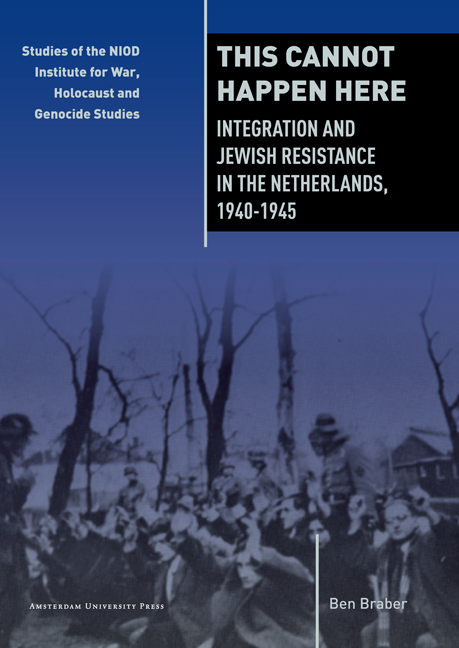2 - Participation of Jews in the Economy, Politics and Arts
Published online by Cambridge University Press: 15 January 2021
Summary
In 1919 the author Jacob Israël de Haan declared in one of his popular newspaper articles:
[The] particular is always particular of the general. And what I have enjoyed and suffered and done, is a particular, personal form of what a Jewish boy of my nature and talent in my country and in my time was able to enjoy, suffer and do.
De Haan wrote these words after he had left the Netherlands for Palestine. He was by no means an unsuccessful writer and had published several novels and collections of poems. However, his words suggest that his participation in the wider Dutch society had been limited because he was a Jew. Others Jews in the Netherlands also found such limitations. There was progress – increasingly Jews were able to take part in a growing number of economic, political and artistic sectors of the Dutch society – but during the 1930s, when attitudes towards Jews again became more negative, some of the advances were undone.
There was of course interaction between attitudes and participation. Typical economic roles such as money lending and street trading, sometimes the outcomes of traditional prejudice, contributed to the formation and expression of attitudes towards Jews in the wider Dutch population. In turn, these attitudes shaped the participation of Jews in the general economic, political and artistic life of the Netherlands. However, Jewish involvement also depended on developments in the Dutch economy, politics and arts, and on the opportunities for participation that these developments created. Between 1870 and 1940 the Dutch society went through a period of accelerated change, with economic expansion and industrialisation, growing prosperity for almost all sectors of the population, democratisation for the middle classes, the emergence of new political parties, the establishment of mass organisations for the working population, and the rise of new artistic movements, all of which created openings. Furthermore, participation of Jews in society also varied according to personal circumstances and qualities such as the knowledge and skills of individuals, while education steered the direction and speed of their participation.
Education
The reorganisation and modernisation of Dutch education before 1940 offered prospects for social mobility to children of parents who were able or prepared to make sacrifices to allow their offspring to study.
- Type
- Chapter
- Information
- This Cannot Happen HereIntegration and Jewish Resistance in the Netherlands, 1940–1945, pp. 39 - 60Publisher: Amsterdam University PressPrint publication year: 2013



